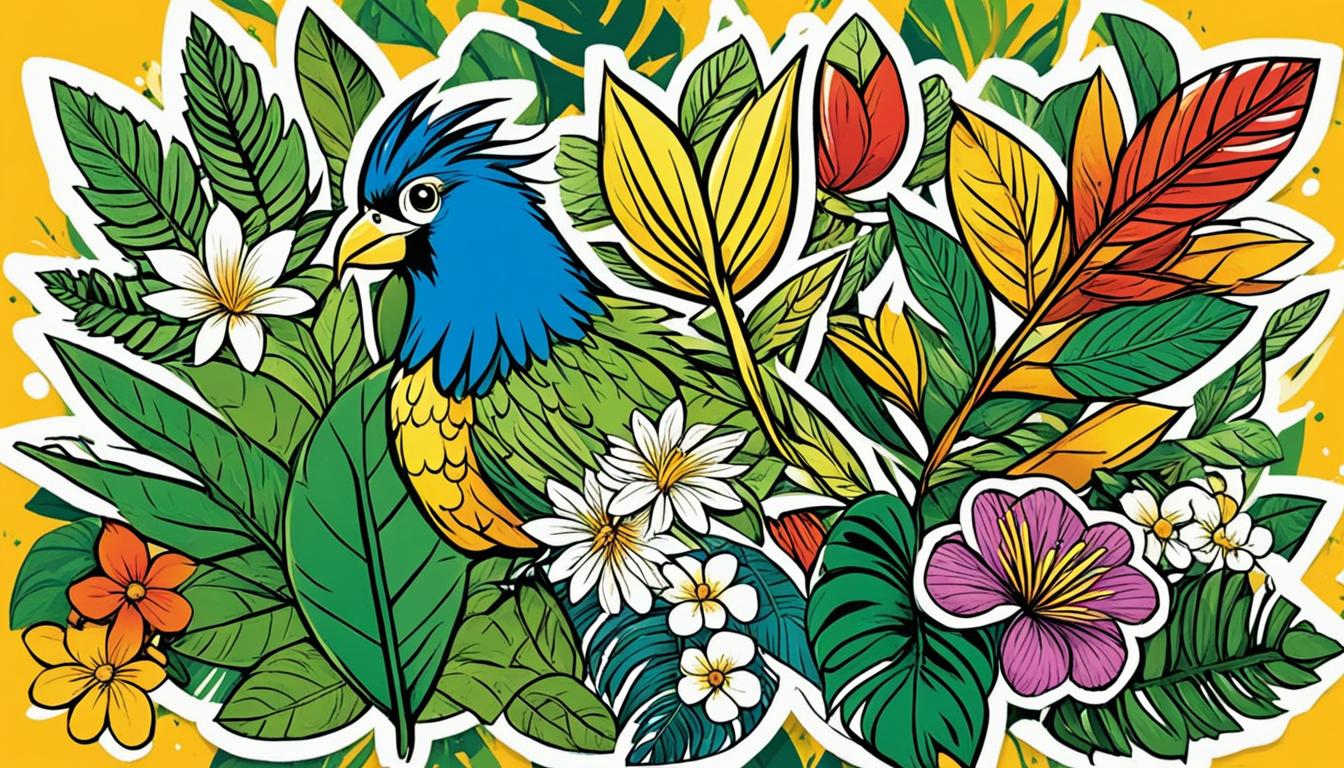Did you know that the Iatê language, spoken by the Fulni-ô people in the state of Pernambuco, Brazil, is a language that has defied the odds? Despite repression and attempts at cultural assimilation, this indigenous language has managed to not only survive but also thrive. Today, there are around 500 active speakers and approximately 7,000 passive speakers who can understand this fascinating dialect. The Iatê language is a testament to the resilience of the Fulni-ô community and a key to unlocking the richness of Brazil’s indigenous culture.
If you’re passionate about language learning and fascinated by different cultures, the Iatê language is an incredible opportunity to immerse yourself in the traditions and heritage of the Fulni-ô people. Whether you’re interested in taking online courses or attending language classes, there are plenty of resources available to help you embark on your journey to language fluency and proficiency. By acquiring the Iatê language, you not only broaden your linguistic skills but also contribute to the preservation and revitalization of an invaluable cultural treasure.
Origins of the Iatê Language
The Iatê language, also known as Yaathe or Yathê, is an indigenous language spoken by the Fulni-ô people in Brazil. It holds a unique position in the Northeast region as one of the few indigenous languages that has remained intact and preserved over time. Despite the challenges and attempts at cultural assimilation and repression, the Iatê language has persevered thanks to the efforts of the Fulni-ô community.
The Fulni-ô people have been proactive in preserving their language through various means, including education, cultural practices, and the arts. Their dedication to language preservation has ensured that the Iatê language continues to be spoken and serves as a symbol of resistance.
“Language is the essence of our culture, and preserving it is vital to our identity as Fulni-ô people. Through education and cultural practices, we strive to safeguard the Iatê language for future generations,” said a member of the Fulni-ô community.
The Iatê language is not just a means of communication for the Fulni-ô people; it is deeply intertwined with their history, worldview, and cultural practices. It plays a vital role in their rituals, ceremonies, and traditional activities, making it an indispensable part of their cultural identity.
The resilience of the Fulni-ô community in preserving the Iatê language showcases their commitment to preserving their cultural heritage and ensuring the language’s survival for future generations.
Preservation Efforts Through Education
Education plays a significant role in the preservation of the Iatê language. The Fulni-ô community has established language programs within their schools to teach the Iatê language to the younger generation. By integrating the language into the curriculum, they ensure that it remains an essential part of their education system.
The retention of the Iatê language in educational institutions not only provides a formal learning environment but also creates opportunities for the language to be passed down to future generations. It allows for the development of language skills, fosters a sense of cultural identity, and strengthens the bonds within the community.
Cultural Practices and the Arts
Cultural practices and the arts also play a significant role in preserving the Iatê language. The Fulni-ô people actively engage in cultural activities, such as storytelling, music, and dance, where the language is used and celebrated.
These cultural practices serve as a platform for transmitting and perpetuating the Iatê language. They provide opportunities for community members, young and old, to engage with the language in a meaningful way. Through songs, poems, and stories, the Fulni-ô people ensure that the language remains alive and thriving.
Significance of the Iatê Language
The Iatê language, also known as Yaathe or Yathê, holds immense significance for the Fulni-ô people. It is not merely a means of communication but a vital part of their cultural identity, deeply rooted in their history, rituals, ceremonies, and traditional practices.
Throughout generations, the Iatê language has served as a thread that weaves together the fabric of Fulni-ô cultural heritage. It is through this language that the community expresses their worldview, values, and beliefs, passing down ancestral knowledge and wisdom to future generations.
“The Iatê language is more than just words. It is the essence of who we are as Fulni-ô people. It connects us to our past, anchors us in the present, and guides us towards our future.” – Elder of the Fulni-ô community
Despite the challenges faced in preserving their language, the Fulni-ô community has demonstrated remarkable resilience and determination. They recognize the irreplaceable role the Iatê language plays in maintaining their cultural identity and have taken proactive measures to ensure its survival.
Efforts to preserve the Iatê language are visible through education initiatives, cultural programs, and community-led language revitalization projects. By embracing their linguistic heritage, the Fulni-ô people actively reclaim their cultural identity and assert their place in the rich tapestry of Brazil’s indigenous languages.

The preservation of the Iatê language goes beyond the Fulni-ô community; it is a testament to the importance of indigenous language preservation globally. As languages disappear, so too do unique perspectives, knowledge systems, and ways of understanding the world around us.
By recognizing and cherishing the significance of the Iatê language, we not only honor the cultural legacy of the Fulni-ô people but also contribute to the preservation of linguistic diversity, a cornerstone of our shared human heritage.
Learning Opportunities for the Iatê Language
If you are interested in learning the Iatê language, there are several opportunities available. Online courses and language classes specifically focused on the Iatê language are offered by various organizations and institutions. These programs provide comprehensive language instruction, covering phonology, vocabulary, grammar, and cultural aspects of the language. By participating in these learning opportunities, individuals can gain a deeper understanding of the Iatê language and contribute to its preservation and revitalization.
“Learning a new language opens up a world of possibilities, and studying the Iatê language is a unique opportunity to connect with the rich cultural heritage of the Fulni-ô people. Whether you choose online courses or attend language classes, the key is to immerse yourself in the language and practice regularly. By engaging with native speakers and exploring the cultural context, you can enhance your language skills and develop a deeper appreciation for the Iatê language.”
For those looking for flexible learning options, online courses are a convenient way to study the Iatê language at your own pace. These courses typically offer interactive lessons, quizzes, and resources to support your language learning journey. You can access the materials from anywhere, making it accessible to learners worldwide.
If you prefer a more structured approach, language classes provide the opportunity to learn in a group setting. These classes are often led by experienced instructors who are well-versed in teaching the Iatê language. Class sessions may include conversation practice, cultural insights, and interactive activities to help you develop your language skills.
Iatê Language Learning Resources
Here are some resources to get you started in your Iatê language learning journey:
- Online language learning platforms: Platforms like Duolingo and Babbel offer courses in a variety of languages, including the Iatê language. These platforms provide interactive exercises, vocabulary building, and pronunciation practice to enhance your language learning experience.
- Language learning apps: Mobile apps like Memrise and Rosetta Stone offer language courses that you can access on your smartphone or tablet. These apps utilize gamification and spaced repetition techniques to make language learning engaging and effective.
- Language exchange programs: Connecting with native speakers through language exchange programs can be a valuable learning experience. Websites like Tandem and HelloTalk allow you to connect with native Iatê language speakers who are interested in language exchange, giving you the opportunity to practice your language skills in a real-life context.
By taking advantage of these learning opportunities and resources, you can embark on a fulfilling journey to learn the Iatê language and contribute to the preservation of this unique indigenous language.
Achieving Fluency and Proficiency in the Iatê Language
Achieving fluency and proficiency in the Iatê language requires consistent practice and dedication. To truly grasp this unique indigenous language, it is essential to immerse yourself in the language and engage with native speakers whenever possible.
Regular study of vocabulary, grammar, and pronunciation is crucial for language development. By expanding your vocabulary and understanding the grammatical structure of the Iatê language, you will be able to communicate more effectively and express yourself with greater clarity.
Additionally, learning about the cultural context in which the language is used can greatly enhance your language skills. Understanding the traditions, customs, and beliefs of the Fulni-ô people will provide you with a deeper appreciation and comprehension of the Iatê language.
Tips for Language Fluency and Proficiency in the Iatê Language
- Immerse Yourself: Surround yourself with the Iatê language as much as possible. Listen to native speakers, watch videos or listen to podcasts in Iatê, and seek opportunities to practice the language in real-life situations.
- Regular Practice: Set aside dedicated time each day to study the Iatê language. Practice speaking, writing, and listening to the language consistently to improve your fluency and proficiency.
- Engage with Native Speakers: If possible, find native speakers of the Iatê language to practice with. Conversations with native speakers will help you develop your language skills and gain a deeper understanding of the cultural nuances of the language.
- Use Language Learning Resources: Take advantage of language learning resources such as textbooks, online courses, and language apps specifically tailored to learning the Iatê language. These resources can provide structured lessons and exercises to supplement your learning.
- Imitate Native Pronunciation: Pay close attention to the pronunciation of the Iatê language and practice imitating native speakers. Focus on the sounds, intonations, and rhythms of the language to achieve more accurate pronunciation.
By actively engaging with the Iatê language and culture, learners can attain a high level of fluency and proficiency. Remember, language fluency is a continuous journey that requires dedication and practice. With perseverance and a genuine interest in the Iatê language, you can become proficient and contribute to the preservation of this valuable linguistic heritage.

| Advantages of Language Fluency and Proficiency in the Iatê Language | Benefits |
|---|---|
| Deep Cultural Connection | Gain a deeper understanding of the Fulni-ô culture and heritage |
| Effective Communication | Ability to communicate with native Iatê speakers and participate in cultural events |
| Work and Travel Opportunities | Enhanced employment prospects and cultural exchange opportunities |
| Contribution to Preservation | Support the ongoing preservation and revitalization of the Iatê language |
Conclusion
The Iatê language is not just a language; it is a valuable linguistic and cultural heritage of the Fulni-ô people. Despite the challenges faced over the years, this indigenous language has been preserved through the unwavering efforts of the community. It stands as a symbol of resilience and cultural identity.
By learning the Iatê language, individuals not only contribute to its preservation but also gain a unique opportunity to connect with the rich Fulni-ô culture and heritage. It is through appreciation and support of the Iatê language that we can contribute to the broader goal of Indigenous language preservation and the celebration of linguistic diversity.
Language preservation is crucial as it ensures the survival of not just a language, but an entire way of life. Preserving the Iatê language honors the indigenous heritage and cultural traditions of the Fulni-ô people, allowing future generations to embrace their unique identity and strengthen their sense of belonging. Learning the Iatê language is not just an academic pursuit; it is a meaningful act that fosters inclusivity, understanding, and the recognition of the value of indigenous languages in our society.
FAQ
What is the Iatê language?
The Iatê language, also known as Yaathe or Yathê, is an indigenous language spoken by the Fulni-ô people in the municipality of Águas Belas, in the state of Pernambuco, Brazil.
How has the Iatê language been preserved over time?
Despite facing repression and attempts at cultural assimilation, the Iatê language has been preserved through the efforts of the Fulni-ô community to maintain their language through education, cultural practices, and the arts.
What is the significance of the Iatê language to the Fulni-ô people?
The Iatê language holds great significance for the Fulni-ô people as it is a crucial part of their cultural identity. It plays an important role in their rituals, ceremonies, and traditional practices, and is deeply intertwined with their history and worldview.
How can I learn the Iatê language?
There are several opportunities available for learning the Iatê language. Online courses and language classes specifically focused on the Iatê language are offered by various organizations and institutions.
What does it take to achieve fluency and proficiency in the Iatê language?
Achieving fluency and proficiency in the Iatê language requires consistent practice and dedication. It is essential to immerse yourself in the language, engage with native speakers, and study vocabulary, grammar, and pronunciation regularly.
Why is it important to learn the Iatê language?
Learning the Iatê language not only contributes to its preservation but also provides individuals with a unique opportunity to connect with the Fulni-ô culture and heritage. By appreciating and supporting the Iatê language, we can contribute to the broader goal of indigenous language preservation and the celebration of linguistic diversity.
